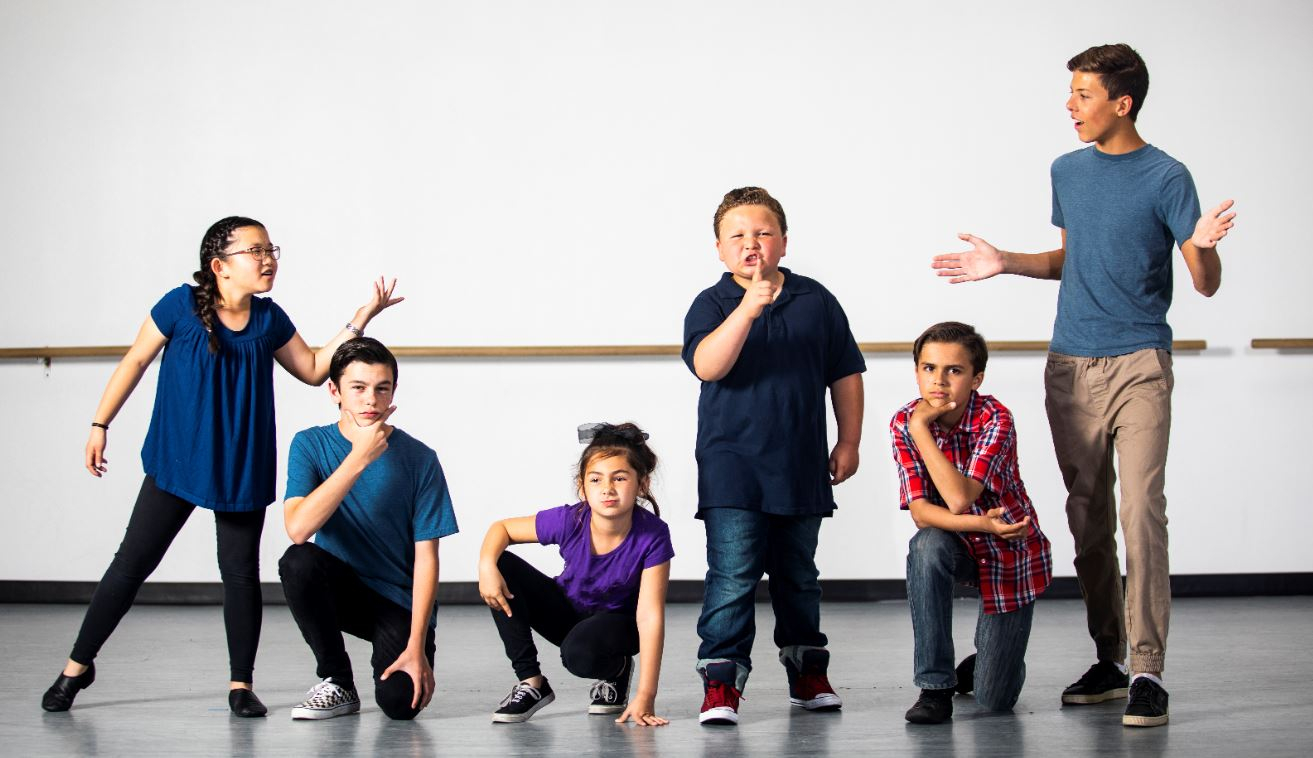It's not about putting on plays!
When we refer to "teaching through drama" we don’t mean putting on a production or any kind of performance. Our curricula and trainings will not culminate in a school play or even a class puppet show. To us, teaching through drama is just good teaching.
"Tell me and I forget, teach me and I may remember, involve me and I learn."Benjamin Franklin
"Teaching through drama" means students experience the content, which leads to the deepest kind of learning: experiential learning. What’s more, the process of experiential learning is loaded with side-benefits. When they role-play or pretend together, not only are students more alert and engaged, with happy brains primed for learning, but they are actually learning skills for success like communication, empathy, confidence, and problem-solving. Within the shared constraints of a debate between fictional characters, an imaginary tour of the region they are studying, or standing up for an imaginary friend in need, even the most reserved children find motivation to speak out, and the most outgoing find opportunities to listen and collaborate.
But I don’t DO drama!
Our trainings, activities and curricula are not designed for drama teachers. They are designed for any teacher who wants their students to actively experience learning. We have been training non-drama-teachers to use drama since 2005 and even the most doubtful teachers are convinced when they see how their children respond. And our "Stand Up and Act Out" training and simple lessons plans give teachers the skills and the confidence to help kids be responsive to issues in the classroom and out on the campus.
Supporting the drama
In a drama-based Upstander lesson, the teacher enters into the spirit of make-believe and the children will run with the idea - there’s no need to highlight that we are pretending, “Oh no, Stand Up Students, we just got a new email from someone who has been being teased for being different. Luckily, you are Upstanders, and you’ll know how to help.”
In training, we teach teachers to participate in the world of pretend, but also to encourage active participation just by commenting on effective performances:
“I can see Danielle is feeling disappointed by her body language.”
“I know from Sophia’s facial expression that she is feeling apprehensive.”
“That phrase was delivered clearly and calmly.”
If students are hesitant? Their teacher can share why drama is helpful in improving school culture:
“Practicing this way will help us build our confidence, making it easier to be an Upstander in real life.”
Even if drama is not their favorite subject, leading the activities in "Stand Up and Act Out" will be easy and rewarding for all teachers. Noticing children standing up for each other on the playground (not to mention less of a need for adult intervention) makes leading a drama-based activity well worth the challenge.
Learn more about "Stand Up and Act Out" here, or sign up to our newsletter



